Montessori Music Program in Chevy Chase

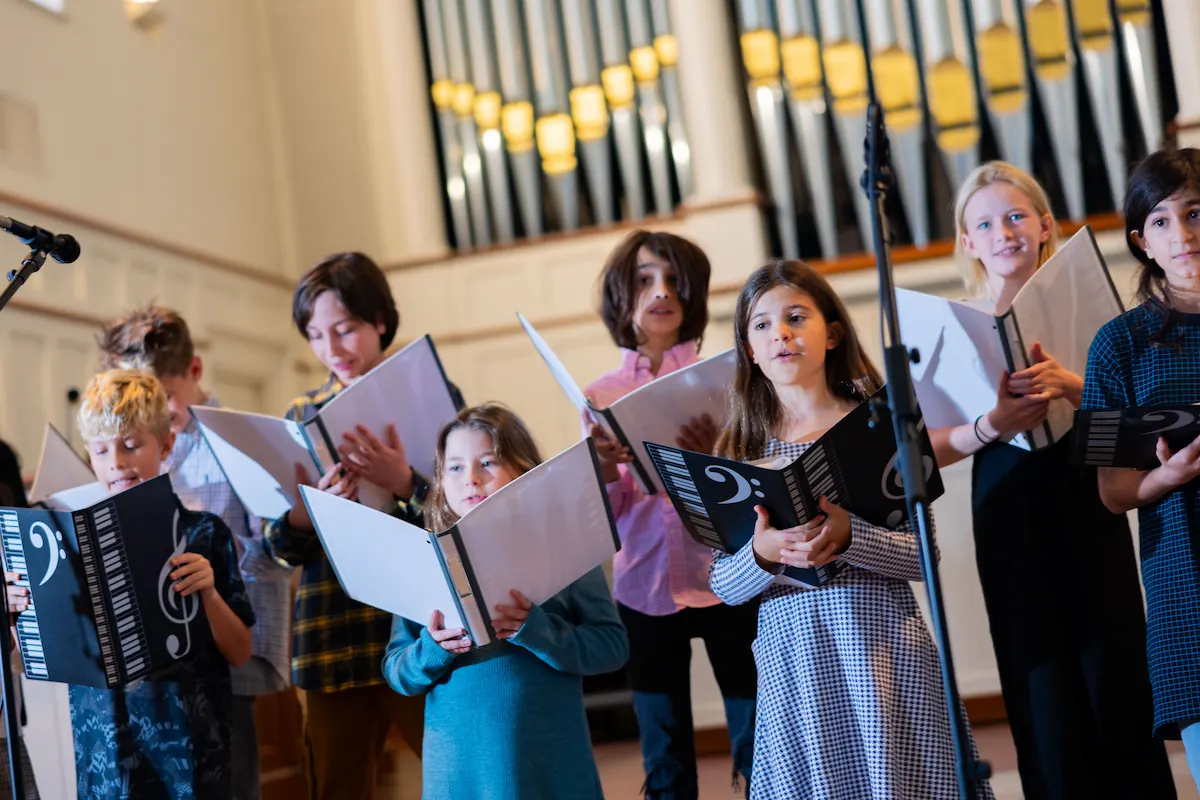 of
Making Music
of
Making Music
The Oneness-Family School music program is dedicated to fostering curiosity, creativity, and understanding within the musical performing arts.
- 37 YearsSince Oneness-Family School was founded in 1988.
- 75 CountriesRepresented by our students, families, faculty, and staff.
- 1 FamilyUnited by a belief in courage, compassion and love of learning.
Key Program Components
Studies have shown time and time again the benefits that studying music brings to other areas like math, science, and reading. We see music as part of, rather than separate from the core curriculum. As such, both are interwoven and as students progress through their years here, they will build upon what they learn.
We strive to incorporate all traditions of musicianship based on the area of study in the core classrooms, showing that music does not belong to one culture or group but to all of us.
Quote: Louise Eriksson
At Oneness, I learned to believe in myself—that if something seems impossible, if you stay with it, you will eventually succeed.
At Oneness, I learned to believe in myself—that if something seems impossible, if you stay with it, you will eventually succeed. As a student at this school, I had a sense of inclusion, that my opinions were heard and valued. All teachers knew us as unique individuals. Oneness to me is a family and I keep in contact with my community even though I am far away. I am now living in Stockholm and interning at Gleechi, a company developing software solutions that enable hand interaction between humans, robots, and computers. I have found that I can combine my passion for art and helping others at the same time!
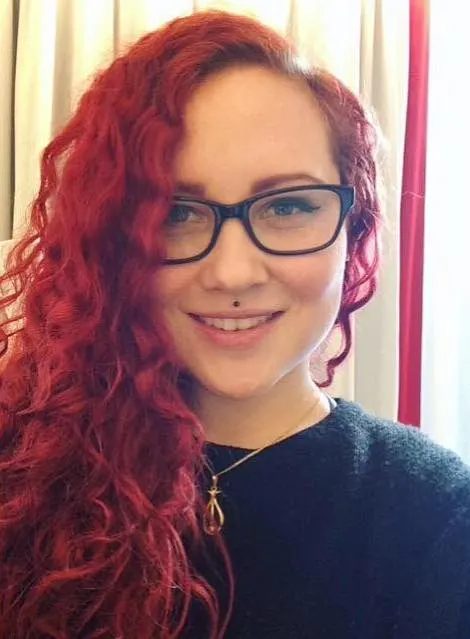
Performance Opportunities
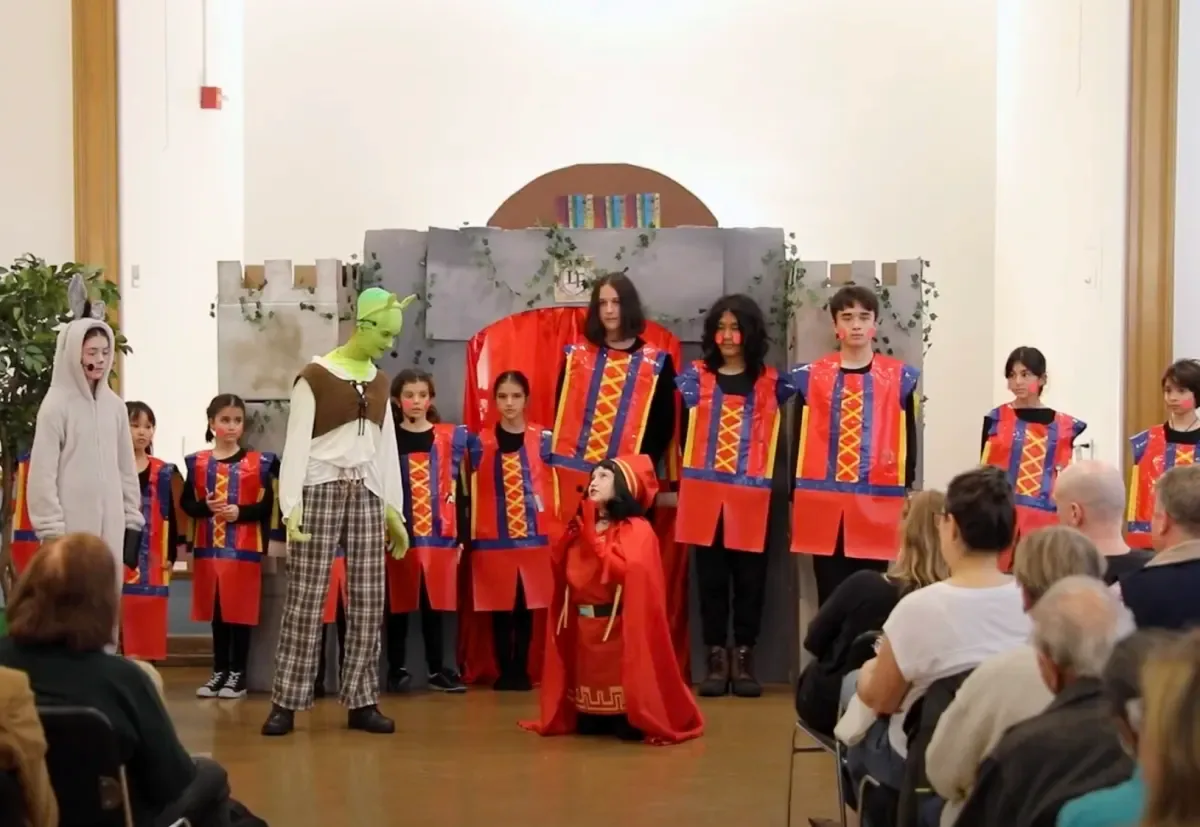
Musical Theater
Musical Theater offers an opportunity for students to perform in a musical theater production in the spring. Most recent productions include Shrek the Musical, Maria Montessori: The Musical, and The Aristocats.
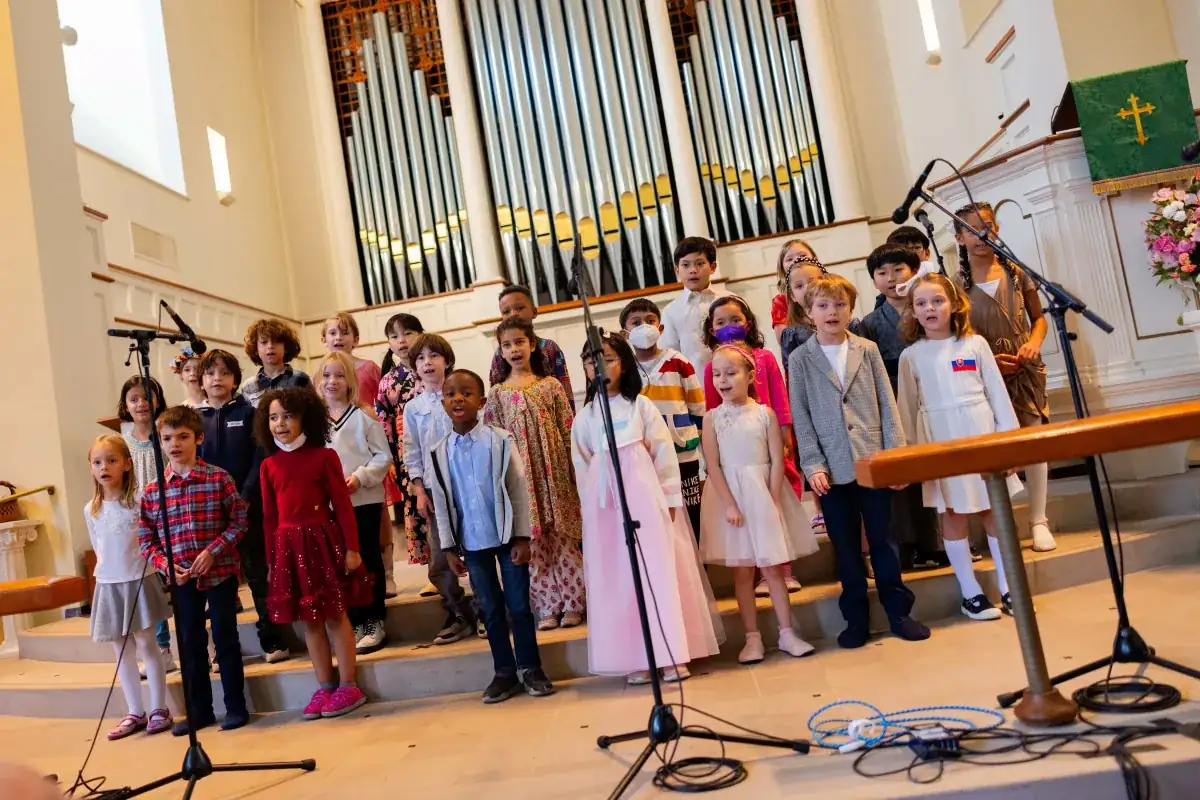
United Nations Day
United Nations Day Day is a celebration of all the nations of the Earth. Students perform a vocal piece rooted in the area of the world they are studying. Ambassadors and embassy guests from over 80 countries attend the ceremony each year.
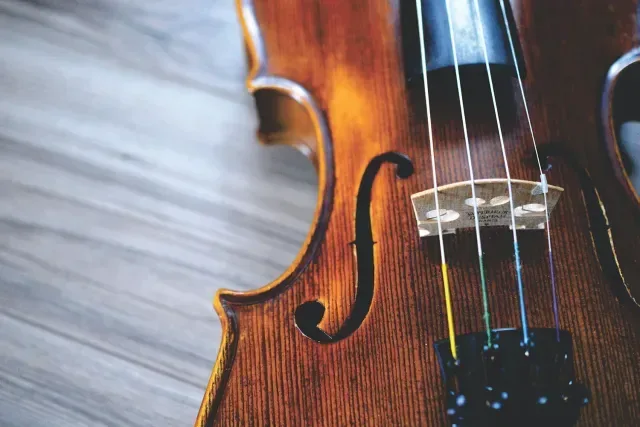
Levine School of Music
In partnership with the Levine School of Music, the school offers weekly woodwind and string instrument lessons to interested students in Grades 4-8. Classes perform at school community meetings and special events.
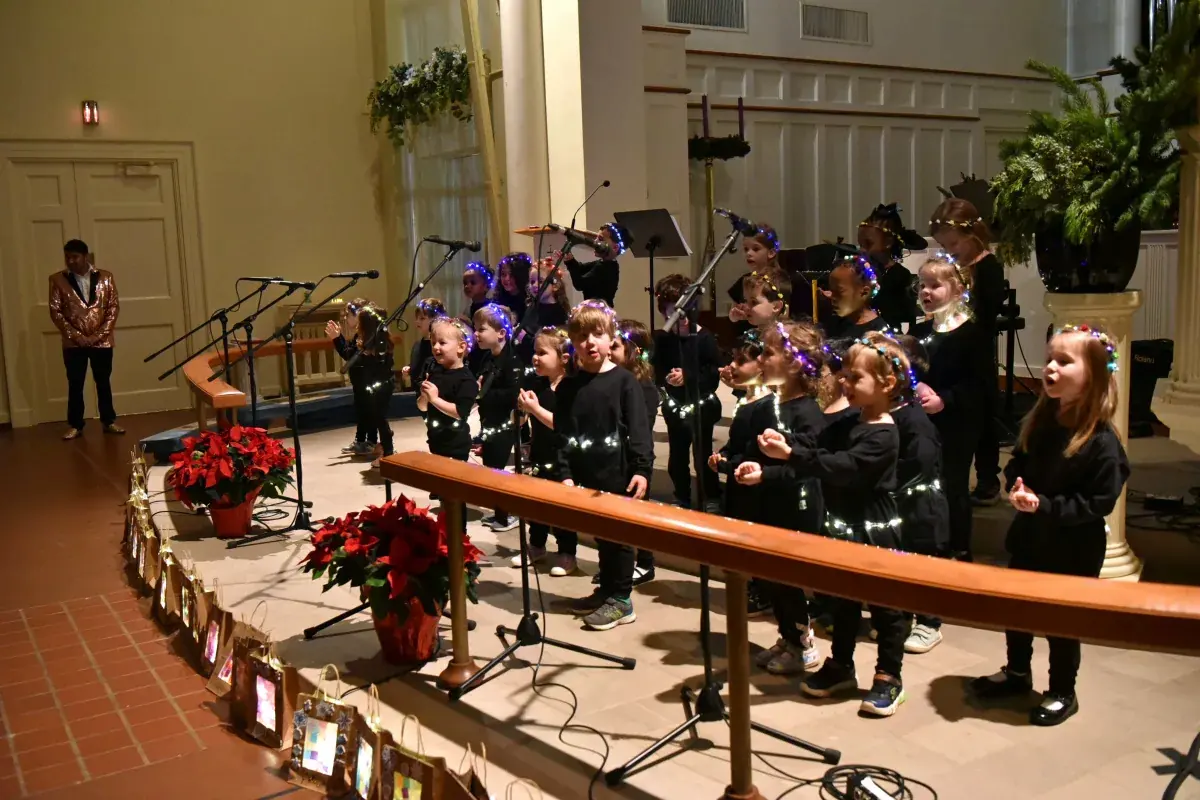
Festival of Lights
A winter fete, the Festival of Lights celebrates a wide variety of cultural end-of-year traditions. Students perform a secular song or a song rooted in the tradition of a particular holiday.

High School Concert
The High School puts on its spring concert, which showcases all of the contemporary ensembles formed by students. Families and staff from all levels are invited to enjoy the performance.
In a Montessori classroom, music is a language children learn to speak with joy, freedom, and curiosity. It’s not just about learning notes or scales, but about developing a deeper connection to sound and rhythm.
Through a carefully prepared environment, children explore a variety of instruments at their own pace, discovering the unique sounds of world instruments.
This hands-on approach fosters concentration and inner discipline, allowing students to experiment and express themselves musically without a rigid curriculum. The goal is to cultivate a lifelong love for music, seeing it as a natural and essential part of human expression.